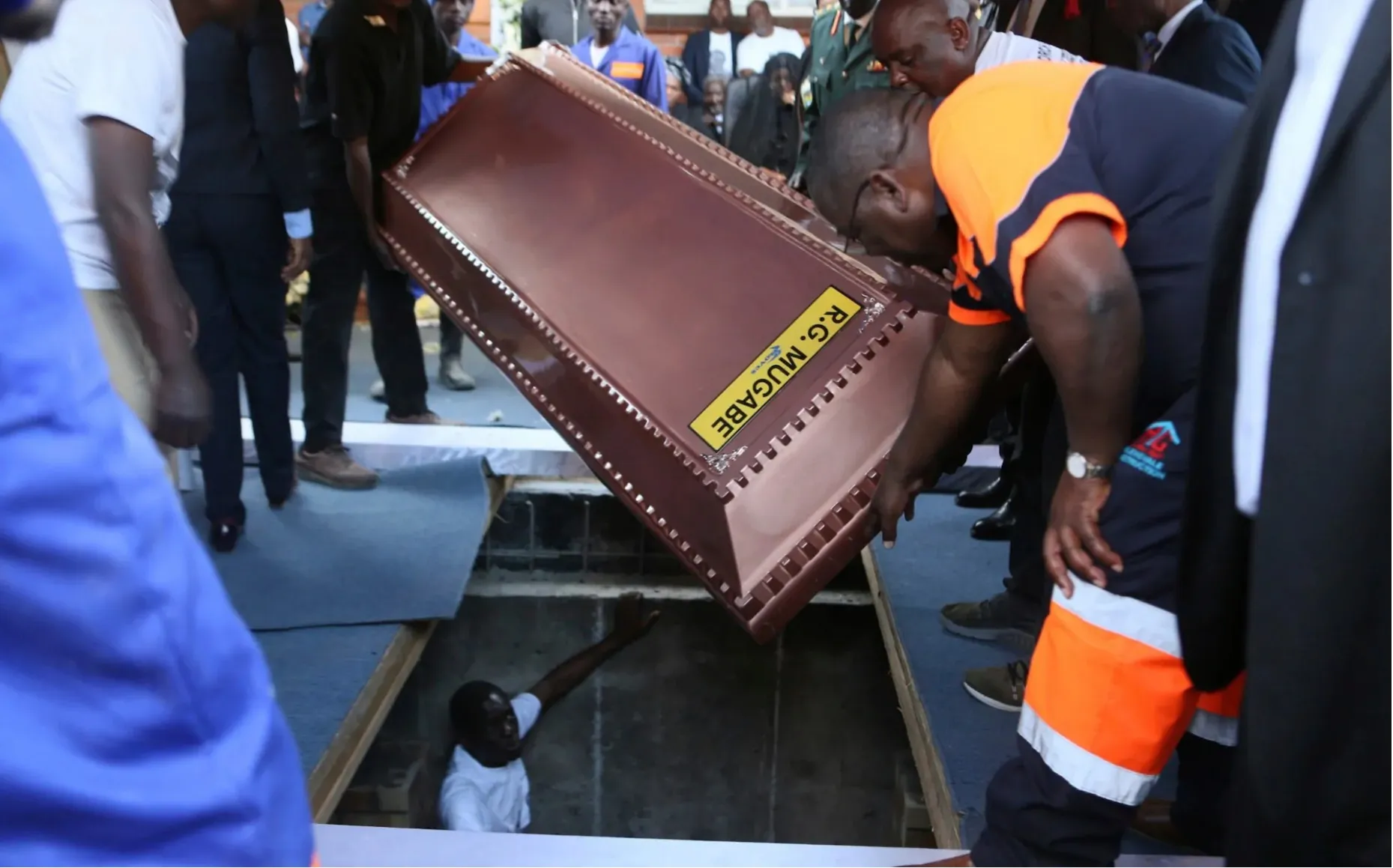Zvimba, Kutama village, Zimbabwe | The children of former Zimbabwean President Robert Mugabe—Bona, Tinotenda, and Chatunga—achieved a significant legal win after Magistrate Kudzanai Mahaso prohibited a Zvimba headman from inspecting the late leader’s burial site as part of a case to exhume his remains.
Headman Tinos Manongovere had sought court approval to conduct an inspection in loco at Mugabe’s gravesite, located at his homestead in Kutama village. However, the court ruled against his request following objections raised by Mugabe’s children. By agreement of all parties, a prior inspection in loco was carried out at other family gravesites within the village.
Mugabe, Zimbabwe’s long-time ruler, was buried at his homestead in a fortified grave to prevent exhumation, diverging from cultural traditions. An empty mausoleum at the National Heroes Acre, initially intended for Mugabe’s burial, was inspected by the court during proceedings last month.
An inspection in loco allows courts to examine a specific location or property to gather evidence or resolve factual disputes. According to Magistrate Mahaso’s December 20 ruling, Mugabe’s children opposed the headman’s application on procedural grounds, arguing that it failed to meet essential requirements for such requests.
Mahaso noted that while the headman was granted time to respond to the objections, he did not submit the necessary documentation by the December 31 deadline. “Unfortunately, nothing was filed in response,” Mahaso stated, emphasizing that the ruling had to be based solely on the submitted documents.
Manongovere argued that the inspection was critical to determining whether Mugabe’s burial site adhered to Zvimba cultural customs. He alleged the burial was conducted inside a house, which he claimed was against local traditions.
Mugabe’s children countered that the application was procedurally flawed, citing the absence of a properly commissioned founding affidavit, which is required to provide background facts for such a request. “A founding affidavit is essential to outline the basis of an application and support it with sufficient facts,” Mahaso explained.
The magistrate further clarified that granting an inspection in loco is at the court’s discretion and is not automatically approved upon request. In this instance, Mahaso noted that the proposed inspection would have required access to private property, raising concerns about property rights and potential trespass.
“The right to privacy is a fundamental consideration,” Mahaso ruled, referencing constitutional protections against arbitrary interference with an individual’s home or family. He highlighted that alternative evidence, such as witness testimony, could be used to resolve the factual dispute without infringing on property rights.
Ultimately, the court emphasized the importance of balancing the need for evidence with the protection of privacy and property rights, ruling in favor of Mugabe’s children and barring the proposed inspection.
For comments, Feedback and Opinions do get in touch with our editor on WhatsApp: +44 7949 297606.

For comments, Feedback and Opinions do get in touch with our editor on WhatsApp: +44 7949 297606.
